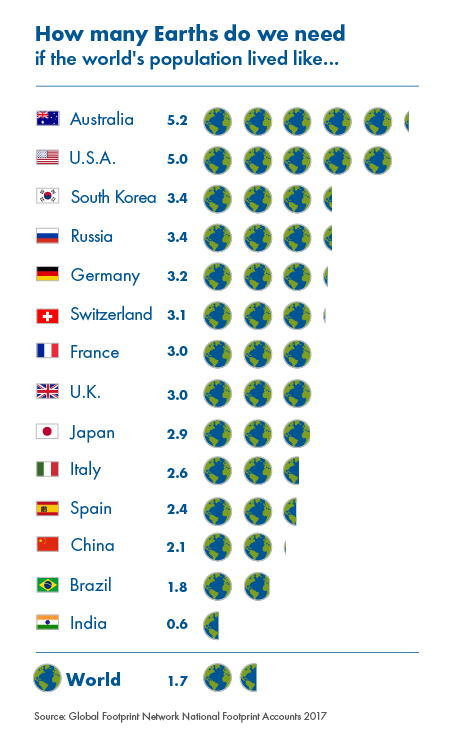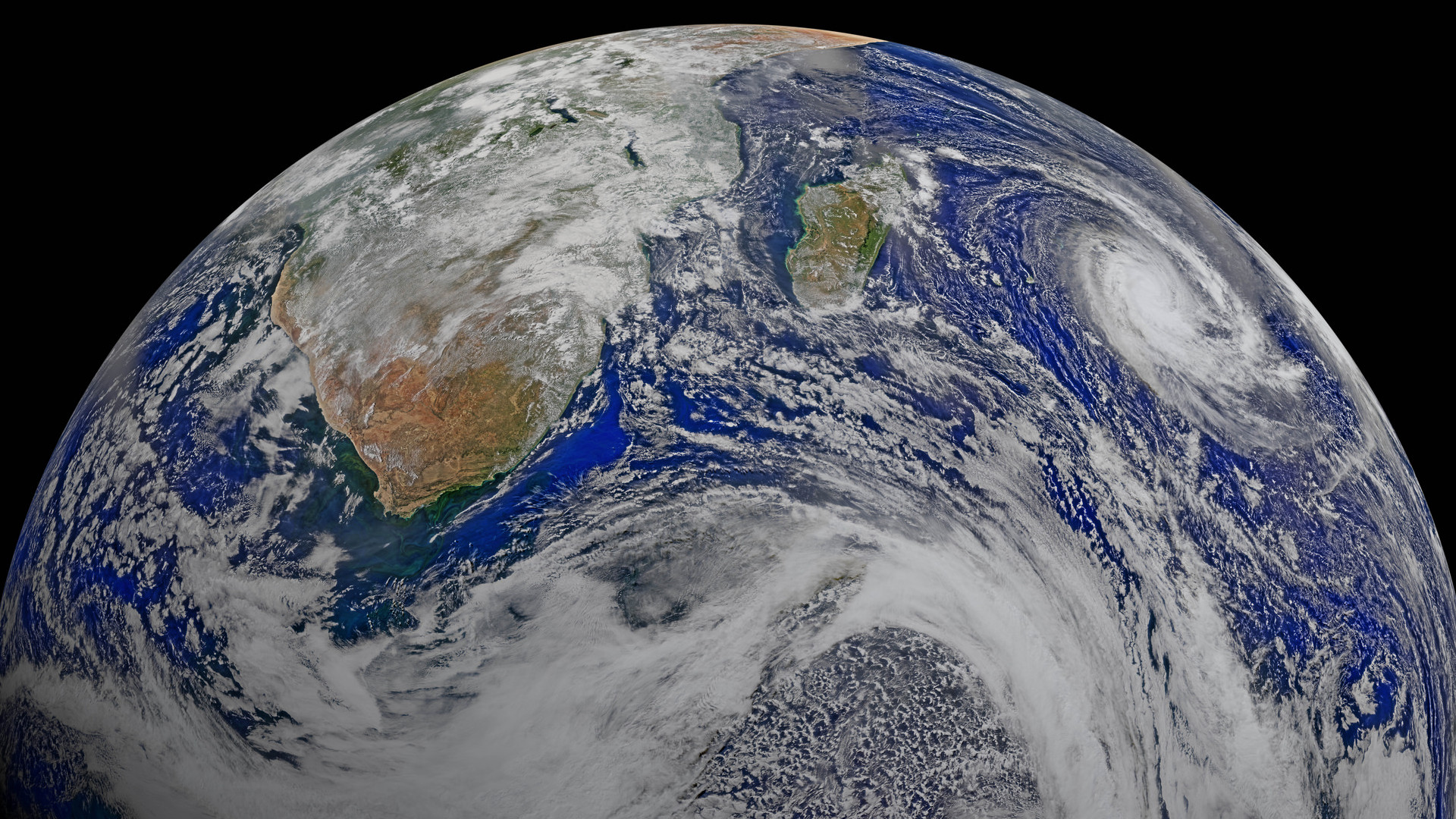We humans use a lot of stuff — so much stuff, in fact, that we consume more in a year than the planet is capable of regenerating.
That wasn’t a problem until a few decades ago. Back in 1987 the “overshoot” date for Earth’s resources was December 19, less than two weeks before the end of the year. That’s not too bad, right?
Thirty years later, however, that date has moved up — and up — and up. Last year what has now been dubbed Earth Overshoot Day had moved all the way up to August 8.
This year it’s even earlier.
August 2.
That means that by the end of 2017 we will have used the equivalent of about 1.7 Earths’ worth of resources.
Oops.
 “It’s surprising that we haven’t been able to turn around the trend much,” says Mathis Wackernagel, president of the Global Footprint Network, which runs the Earth Overshoot Day campaign each year. “The increase seems to be slowing down, but not very rapidly yet.”
“It’s surprising that we haven’t been able to turn around the trend much,” says Mathis Wackernagel, president of the Global Footprint Network, which runs the Earth Overshoot Day campaign each year. “The increase seems to be slowing down, but not very rapidly yet.”
(The Revelator is published by the Center for Biological Diversity, one of Global Footprint Network’s partners in Earth Overshoot Day.)
Despite the six-day leap forward this year, Wackernagel actually encourages people to take Earth Overshoot Day as a positive moment and an opportunity for change. “Since the very beginning we have pledged to be optimistic, positive, and just describe what the situation is.”
Being positive helps, but it isn’t necessarily enough, so this year Earth Overshoot Day has introduced a new level of interactivity. “We added a new twist called Move the Date,” Wackernagel says, “to say what would it actually take to move the date four and a half days per year?” The Move the Date webpage contains six pledges people can take to make an individual or societal difference. They include something as simple as trying a new vegetarian recipe to pledging to reach out to your city leadership for broader change.
“It’s a way to translate something that feels insurmountable into kind of bite-sized opportunities,” Wackernagel says.
Wackernagel admits that moving the date back 4.5 days is a relatively small goal. “To my taste that wouldn’t be enough, but at least it would be much, much better than what we do now,” he says. And, he adds, if we accomplished that 4.5-day shift every year, we’d be back to using the resources of a single planet by the year 2050.
Another new component this year is a web tool to “calculate your own Overshoot Day.” Visitors can use the site’s footprint calculator — which looks like a 3D video game — to figure out how much they use and how it compares to others. “It lets people see what Earth Overshoot Day would be like if everybody acted like you,” Wackernagel says.
The site also contains resources for students and teachers, as well as a list of additional solutions from Project Drawdown, which earlier this year calculated the 80 most effective ways to reverse global warming.
Wackernagel acknowledges that some simple things such as eating a single vegetarian meal won’t move the global needle very far, but adds that everyone can make a difference. “We want to get away from people’s strong perception that sustainability is about a voluntary lifestyle choice for a select few. Rather, sustainability is a collective necessity, if we want to have a successful, prosperous future,” he says.




Overconsumption is driven by the desire for material things. That’s both the root and the heart of the problem. As Buddhism teaches, the only way to adequately deal with this problem is to shed your desires to the extent possible, because the more you get, the more you want; it’s a never-ending vicious cycle.
Unfortunately, Americans are the most materialistic and consumptive people on Earth. That combined with our huge and growing population means the U.S. does more harm to our planet than any other country. In the U.S. more than anywhere, we need to stop consuming so much “stuff,” as Annie Leonard (now the head of Greenpeace) put it.
And BTW, “overconsumption” includes consuming things we shouldn’t be, such as oil and coal. So get rid of your car and put solar panels on your roof if you own your home, in addition to giving up buying needless crap instead of just experiencing & participating in life and expanding your consciousness.